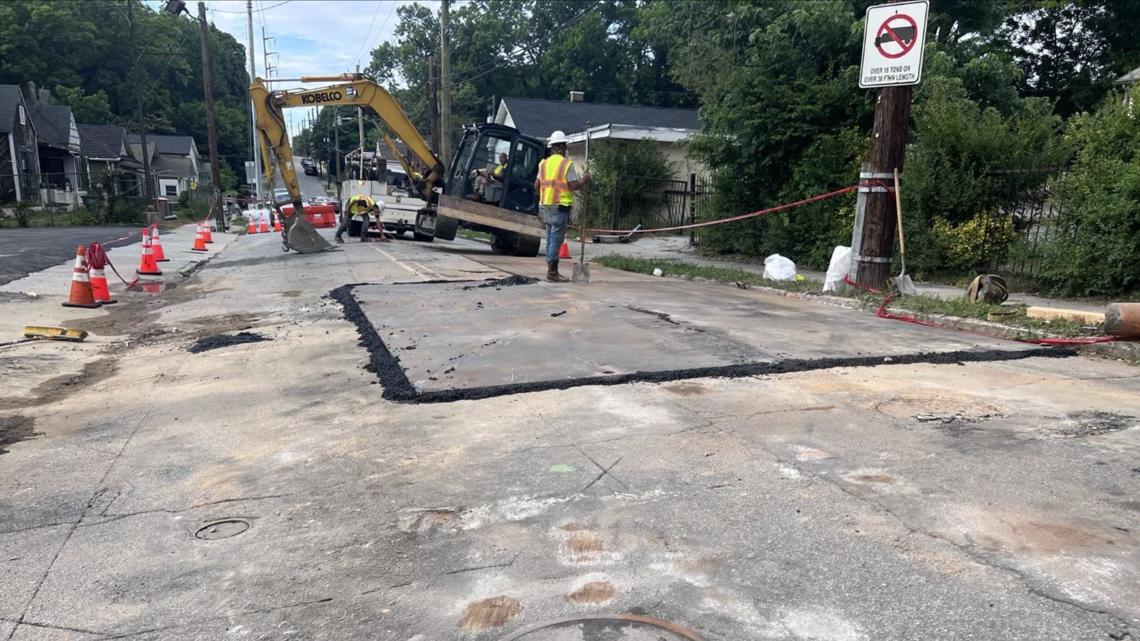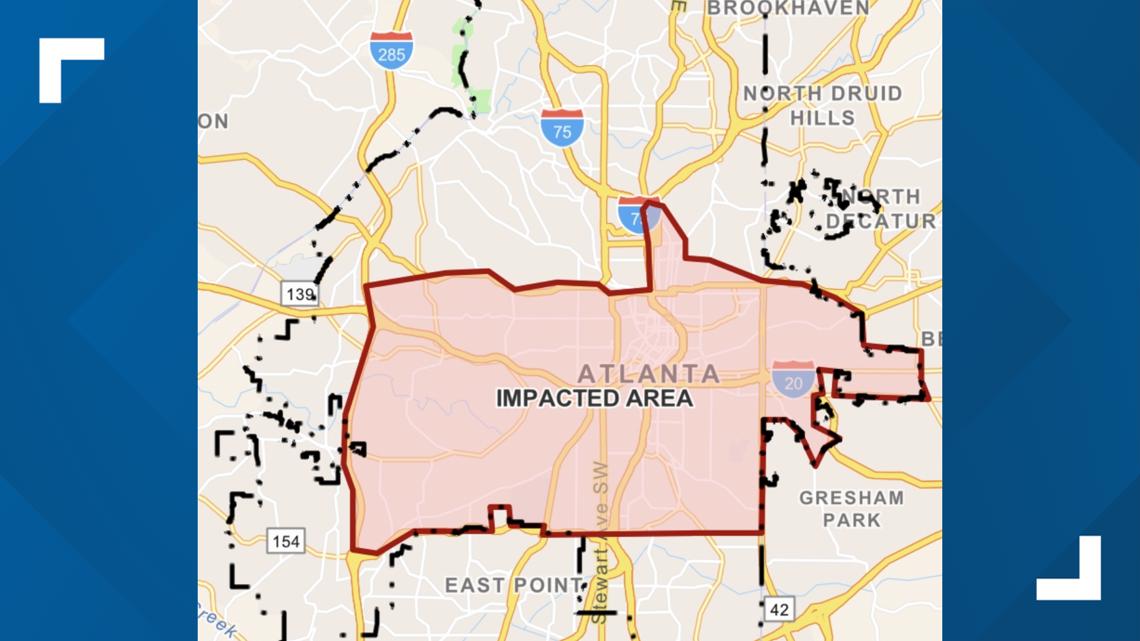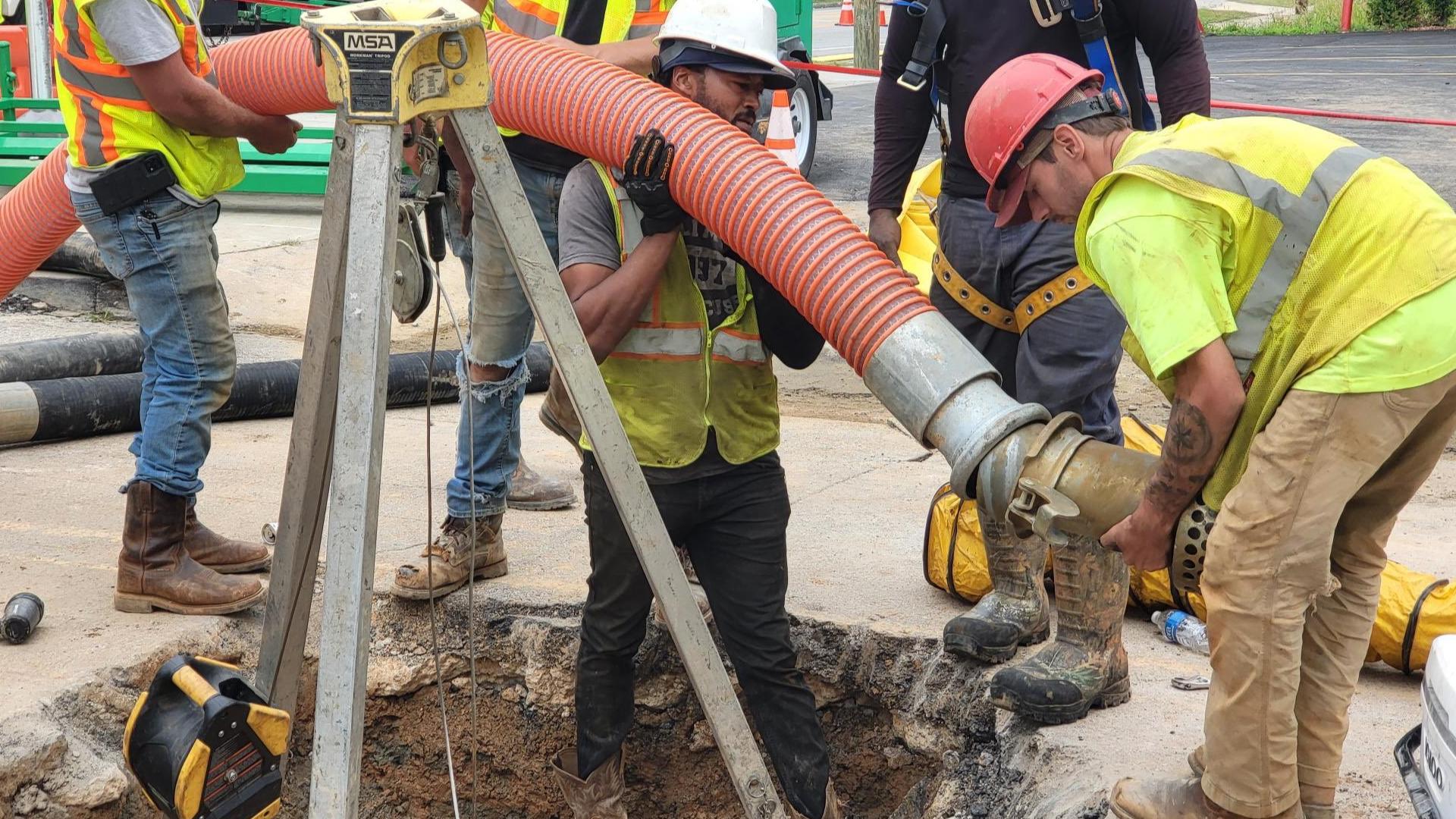As thousands across Atlanta are still dealing with the impacts of several key water main breaks that have enforced a boil water advisory for much of the city, crews are working around the clock to help get water services back up and running.
On Saturday night, Atlanta Mayor Andre Dickens declared that the City of Atlanta was now under a state of emergency following several major water main breaks that began Friday morning.
The City of Atlanta Watershed Management expanded the boil advisory Saturday afternoon to include a larger portion of the city of Atlanta, stating that all residents who have experienced water outages and low water pressure should boil their water.
On Saturday afternoon, Atlanta Mayor Andre Dickens promised that there would be updates regarding the progress of repairs every two hours until all water mains are completely fixed. 11Alive is tracking those updates below, as well as building closures around the city.
Water main break updates
9:52 p.m. | Atlanta Mayor Andre Dickens declared that the City of Atlanta is now under a state of emergency following several major water main breaks that began Friday morning. Crews are still working to repair one last major water main break in Midtown Atlanta, but Dickens said there is no timetable for when that will be complete due to it being more "complicated."
9:41 p.m. | Georgia Aquarium will reopen on Sunday under normal operating hours. Due to the boil water advisory, some amenities like water fountains and ice may not be available for visitors. If you had tickets for Friday, May 31, or Saturday, June 1, you can exchange them for a future visit by calling the Call Center at 404-581-4000.
8:44 p.m. | Emergency repairs have been completed on a smaller water main break near Atlantic Station at 1190 Atlantic Drive. Water service has been restored to residences, businesses and hydrants in the area.
That means that all but one water main break has been repaired. The only one that crews are still working on is the one at 11th Street and West Peachtree Street.
8:34 p.m. | Water service has been restored to residences, businesses and hydrants in the area around 775 Joseph E. Boone Boulevard.
7:18 p.m. | Repairs can be seen on the road where the water main break happened at Joseph E. Boone Boulevard and James P Brawley Drive.


6:46 p.m. | The repairs to the Downtown Atlanta water main break at Joseph E. Boone Boulevard and James P Brawley Drive have been completed. A boil water advisory does still remain in effect.
6:23 p.m. | Atlanta Mayor Andre Dickens apologized for the inconvenience the water main breaks have caused throughout the city.
5:53 p.m. | The Atlanta Airport tweeted that they are experiencing lower water pressure in their bathrooms.
5 p.m. | In a 4:40 p.m. update, the Atlanta Department of Watershed Management said they had made "significant progress" on repairs to the water main break at Joseph E. Boone Boulevard NW and James P Brawley Drive NW and that they will begin pressurization in a few hours.
4:55 p.m. | Emory Hospital Midtown announced it is having to move some of its patients needing dialysis to other Emory hospitals for treatment.
Ambulances coming to the hospital's emergency department are also being diverted to other hospitals, except for those with "urgent heart concerns," the hospital announced.
4:35 p.m. | The Fox Theatre is closed in Atlanta due to ongoing issues stemming from the water main breaks.
Boil water advisory for Atlanta
Meanwhile, a large portion of the city remains under a boil water advisory as crews continue to work to repair the breaks and return water service to normal.
A map of the boil water advisory zone is below.


How long will the boil water advisory last?
The boil water advisory will remain in place until the Georgia EPD clears the Department of Watershed Management to lift it following sampling and testing.
The city has set up several water distribution sites for residents impacted by the outages.
What is a boil water advisory and what should you do?
During a boil water advisory, water should be boiled for one minute past a rolling boil.
Infants, the elderly, and those with immune deficiencies should be cautious. Do not drink water from public water fountains in the impacted area.
Vigorous hand washing or showers with soap and tap water should be safe for basic personal hygiene. However, if washing hands to prepare food, use boiled (then cooled) water and handwashing soap.

